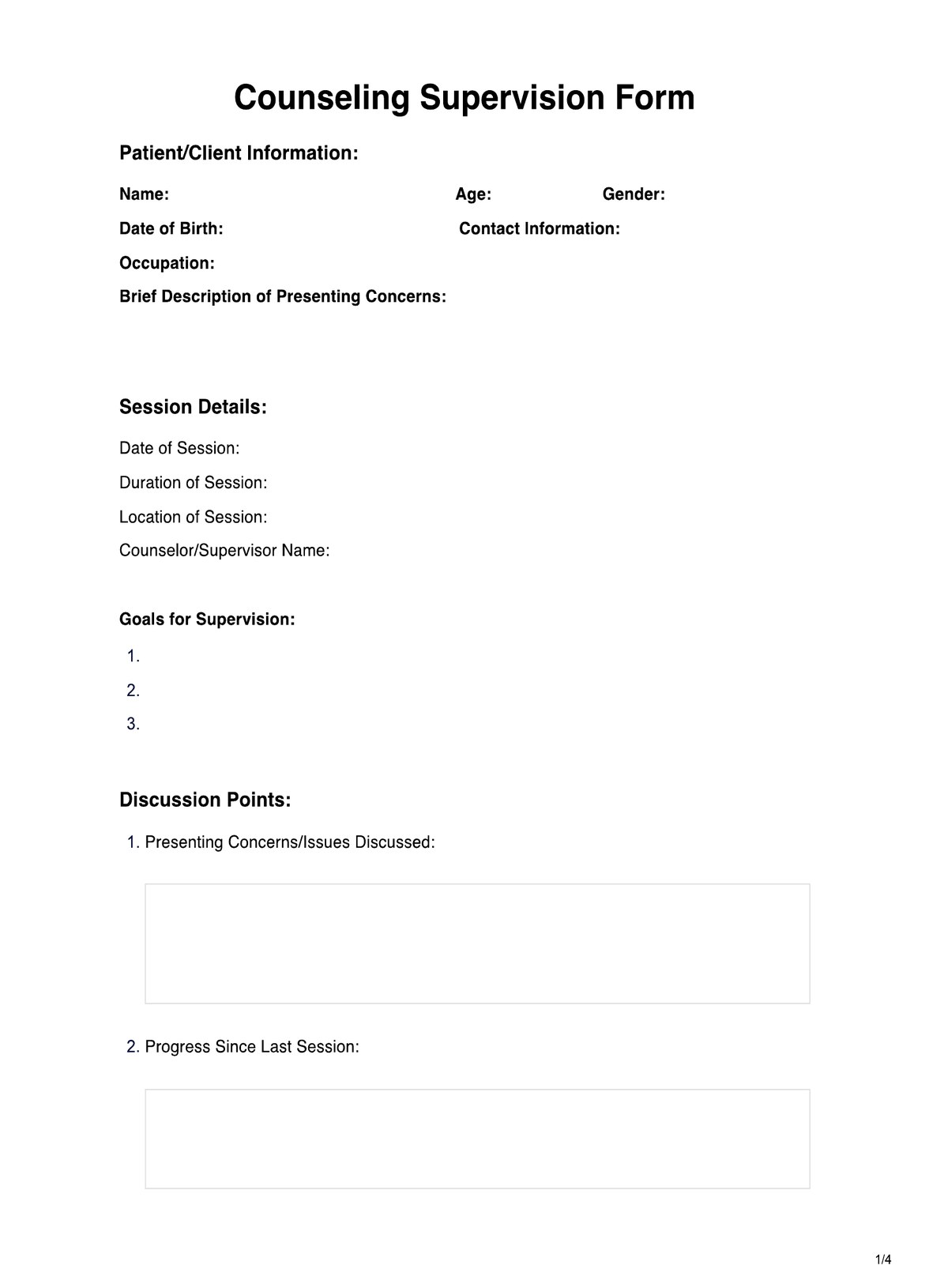
Gain insight into your counseling practice with our Supervision Form. Elevate your healthcare journey today.

By Bernard Ramirez on Jul 15, 2024.


Counseling supervision is a cornerstone of counselor education and professional development within mental health services. It is a structured process where experienced clinicians, known as supervisors, guide, and mentor practicing school counselors or other mental health professionals in their clinical work. This process aims to enhance their counseling skills, promote ethical practice, and ultimately improve client outcomes.
At its core, clinical supervision provides a safe space for counselors to reflect on their therapeutic interactions, explore challenging cases, and receive constructive feedback from their supervisors. Through regular meetings and case discussions, supervisors help counselors navigate complex ethical dilemmas, adhere to professional standards, and maintain the highest level of integrity in their practice.
One of the key objectives of counseling supervision is to foster continuous professional growth. By engaging in reflective dialogue and receiving guidance from seasoned supervisors, counselors can expand their repertoire of therapeutic techniques, deepen their understanding of theoretical frameworks, and refine their clinical judgment. This ongoing learning process benefits individual practitioners and contributes to the overall advancement of the counseling profession.
Moreover, counseling supervision plays a vital role in ensuring the quality and effectiveness of mental health services. Supervisors help safeguard clients' well-being and uphold the ethical principles of confidentiality, respect, and cultural competence by providing oversight and accountability. Through collaborative supervision models, counselors also have the opportunity to learn from their peers, share best practices, and contribute to a culture of continuous improvement within their organizations.